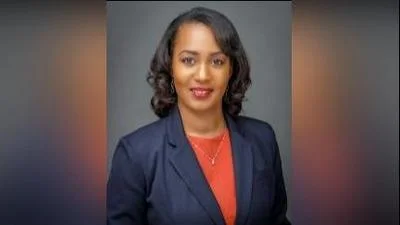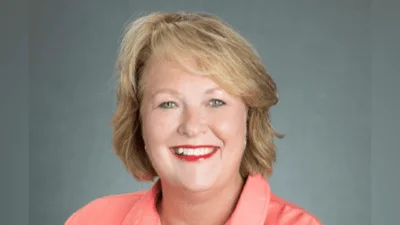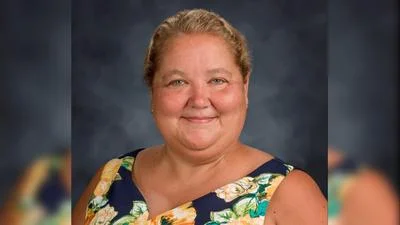Paul Schimpf, the Republican candidate running to fill state Sen. Dave Luechtefeld’s soon-to-be vacant District 58 seat, called into News Radio WJPF earlier this month and talked to host Tom Miller about the Illinois budget situation, job creation and what changes he hopes to bring to Springfield.
“Right now, we’re focusing on the symptoms,"Schimpf said on the radio show. "Right now, we’re talking about how bad everything is, but what we need to do is, like you said, identify the problem. That’s got to be the first step to solve a problem -- you need to identify what it is, and in my mind, the problem that we are having in Illinois is that the job creators are leaving our state, or they no longer want to come to Illinois.”
Schimpf said Illinois is not going to turn around unless the state finds a way to encourage businesses to set up shop in Illinois.

Paul Schimpf
| Contributed photo
“Right now, we have great resources," Schimpf said. "We have tremendous talent here in the state, and we’re being held back by a government that is, to put it kindly, dysfunctional.”
The Waterloo attorney, who has received a stamp of approval from Luechtefeld, said the government in Springfield is not the solution, but has a pivotal role in creating a favorable business climate.
“If government actually wants to be good for anything, it needs to be good for enticing job creators to come to Illinois and stay in Illinois,” Schimpf said.
When lawmakers failed to pass a state budget nearly a year ago, few imagined the impasse would last this long. Crippling numerous state services and schools, Illinois’ financial trouble has led some politicians to use the stalemate as a hanger to hang their political messages on as election season kicks into high gear.
“That’s part of the problem,” Schimpf said. “We need to stop thinking about the next election and start thinking about the next generation. We’ve gotten to the point now -- with the lack of a budget (going on) two years -- we’re doing some lasting damage to our state.”
Although Schimpf has expressed his belief in limited government, the state should provide certain services to its residents, such as education, Schimpf said.
“You’ve got to have an education bill so that our schools can open on time," Schimpf said. "Those are the things that, if we can’t do that, we’re going to cause lasting damage to our state."
School administrators have had a challenging year. Caught in the middle of an unprecedented standoff between the governor and Democrats in Springfield over a state budget, state schools have had to operate on a fraction of the funding they usually receive each year from the state.
Before the spring legislative session came to an end on May 31, Gov. Bruce Rauner made one last attempt to get legislators to pass a stopgap budget to fund the state through the end of the year.
Included in the governor’s bill were six months of funding for schools (K-12) and some state universities, but the bill didn’t make it to the House floor for a vote.
Schimpf said that even though the proposal for a stopgap budget and a clean education bill is not ideal, sitting by and watching the state deteriorate further each day should not be an option for lawmakers.
“So that’s why, even though it’s not the ideal situation, I support the calls for a stopgap budget that will at least get us through January at this point,” Schimpf said.
When it comes to the formula used to dispense funds into Illinois’ public schools, there has been a long-running dispute over the amount appropriated to Chicago public schools.
The state’s General State Aid (GSA) funds K-12 education and was originally intended to financially support the state’s poorest school districts, but the formulas used to calculate how much should be appropriated to districts provide large subsidies to a few select districts.
In 2013, of the more than $500 million in special state education subsidies related to property wealth, the majority went to just 40 of the 102 districts in Illinois. All of the districts that received the funds were in Cook County and its collar counties. Chicago alone received more than $280 million, while downstate districts received a mere 3 percent of the $500 million.
Schimpf said the problem with the school funding formula is indicative of deeper issues at play.
“I think that’s just reflective of the fact that our political class in Illinois has not been able to solve these problems, and that’s one of the reasons why I’m putting my family through the crucible of a political campaign,” Schimpf said. “I think we are at a point in our state’s history where if we’re ever going to get our budget balanced and get our economy going again, and make government work the way it should, we need leaders in Springfield that have new perspective, leadership experience, and most importantly, we need people that can work together.”
Schimpf, who served in the military for 24 years and received a lot of honors during his time in the Navy and Marine Corps, said being successful in the military shows that “you’ve at least demonstrated that you can work with people from across the political and social spectrum,” which is why he is running for the Senate seat from which Luechtefeld is retiring.
Over the past few months, Schimpf has traveled throughout the district, meeting voters and assessing their needs.
“This is a huge district geographically, and it’s a diverse district in terms of we have a lot of correctional facilities, we have a tremendous amount of agriculture in the district, we also have a lot of education, higher education – SIU is the largest employer in the district, so it’s really a diverse district,” Schimpf said. “And even though I grew up here, there’s still a lot that I need to know if I’m able to effectively advocate for our district in Springfield.”
Turning things around in Illinois is no small feat. When questioned by Miller about how much change one senator could influence, Schimpf said it all boils down to intention and integrity.
“It starts with being up there for the right reasons and leading by example. I think that it’s not something where I’m going to be the one to go in and negotiate with (House Speaker Michael Madigan); that’s not my role,” he said. “But I can go up there, and I can say, ‘Look, we need to work together, we need to get solutions for everybody.’ Too often, we’ve talked about Illinois in terms of Democrats vs. Republicans. At this point, the challenges that our state faces are so great that there’s not a Democratic solution, there’s not a Republican solution, there needs to be a solution for one Illinois.”
This November, Schimpf will face off against Sheila Simon, who was the lieutenant governor of Illinois from 2011 to 2015 and the Democratic nominee for Illinois State Comptroller in 2014.
Simon’s father is former U.S. Sen. Paul Simon, who also served as lieutenant governor of Illinois from 1969 to 1973, and her mother is former Illinois State Rep. Jeanne Hurley Simon.
Schimpf concluded by saying the state’s future rests on whom voters elect to represent them.
“If we want better government, government is only as good as the people that make it up. And if you want good government, you need good people in Springfield; you need people with leadership experience and people that (have) proven that they’re willing to stand up for the district, do the right thing and work together.”





 Alerts Sign-up
Alerts Sign-up